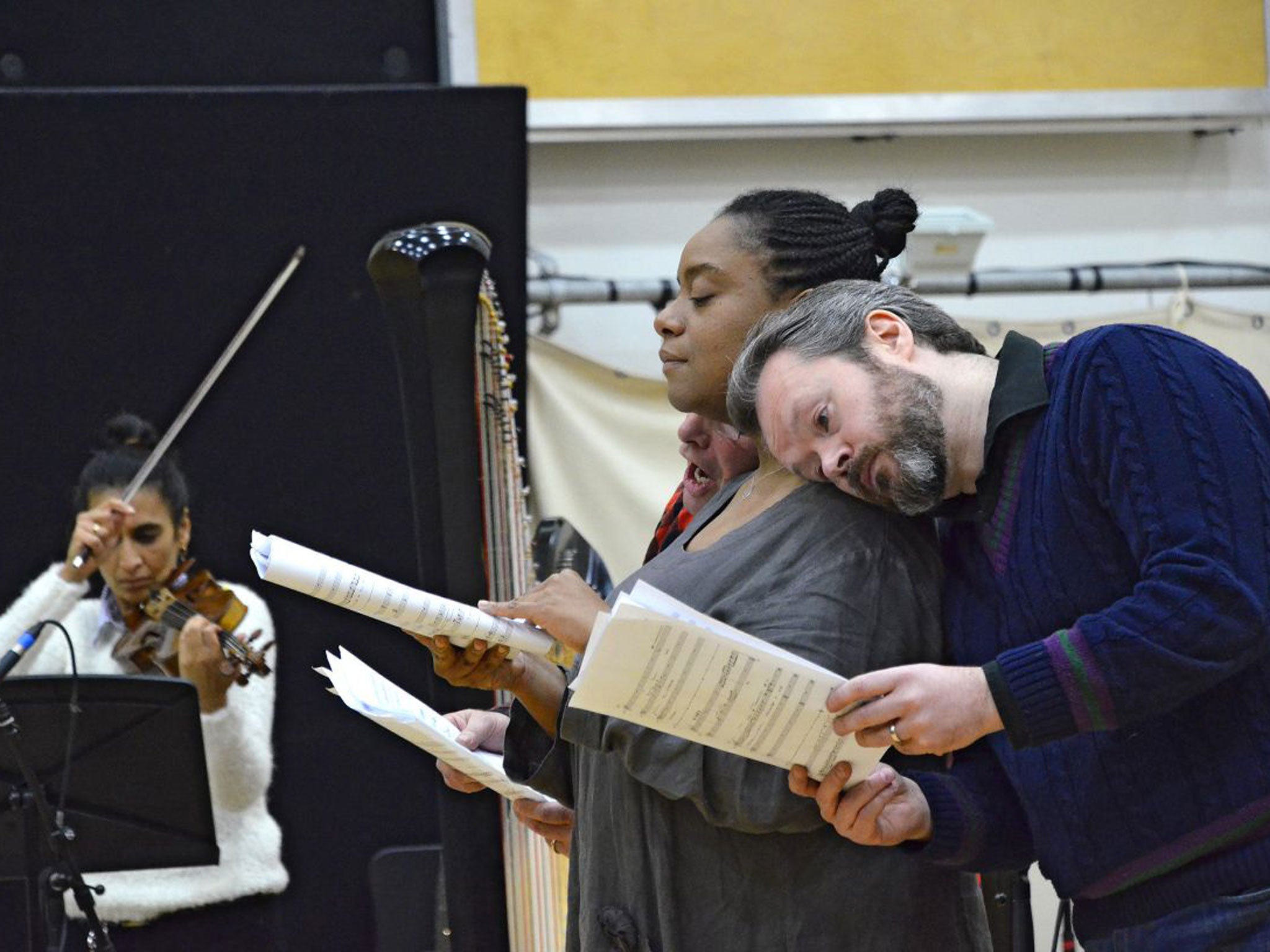Under Milk Wood the opera: a new voice for Dylan Thomas
The composer John Metcalf tells Jessica Duchen how he has turned the poet's Under Milk Wood into an opera

How does anyone transform something as well known and loved as Dylan Thomas's Under Milk Wood into an opera? The Welsh poet's 1954 masterpiece is a radio play with more than 50 characters, portraying the innermost thoughts of the inhabitants of a remote fishing village. More poem than drama, it is infused, in Thomas's unique manner, with a music all its own, a quality that seems to live between the words and in the flow of them, mingling sound with imagery. Translating the little town of Llareggub ("bugger all" backwards) into an actual musical experience is therefore no small matter.
Step forward John Metcalf, Wales's most celebrated opera composer, who has taken up the challenge with gusto. Like Thomas (whose centenary falls this year), Metcalf is from Swansea and is currently director of the Vale of Glamorgan Festival. In the past he has been artistic director of the Banff Centre, Canada, has had two commissions from Welsh National Opera – and his fifth opera, Kafka's Chimp, found an impressive international reach. Now, as his Under Milk Wood: an Opera prepares for its world premiere at Swansea's Taliesin Arts Centre, in a staging directed by Keith Turnbull, Metcalf seems sanguine about a task that could have proved daunting.
"If you're a composer you just go for it," he says. "You don't worry. You can only do what you do and you can't second-guess what the audience will feel or understand. Of course, I've heard every response on the spectrum to the idea, including 'No, it can't possibly be an opera'. Everyone has their own Under Milk Wood."
Rather than trying to set Thomas's text complete – "which would be impossible anyway, as it would take most of the night to sing," he remarks – Metcalf set out to create something wholly new based on it, using only Thomas's words. The clue is the radio play. The opera is set in a radio studio of a type roughly contemporaneous with the play itself.
Most of the eight singers take five or six parts each, other than one, who plays Captain Cat and the Chorus. There's pre-recorded sound to add to the mix, and the Foley artist – the person in charge of live sound-effects such as slamming doors, crunching gravel and horse's hooves – becomes a vital part of the soundworld. "We've had a lot of fun with that," Metcalf remarks.
Streamlining the action and the text, Metcalf has centred the narration on Captain Cat. "Thomas reverts, in the post scene, to Captain Cat as the narrator, so I've taken that idea a bit further," he says. "In general, whenever I got stuck during the composition process, I found that there was one solution: go back to the Thomas."
The inherent musicality of Thomas's words, he adds, proved an advantage, not an obstacle. "Obviously actors have a great repertoire of variety in their voices, rhythm and pitch – but singers have still more," he says. "So with Thomas's alliterations and puns, you have a chance to specify the pitch and the rhythm. For instance, '...sloeblack, slow, black, crowblack...' – there's only so much you can do when you speak this, but singers can do a little bit more. Oddly enough, I'm hoping some of the words will come over even better for being sung."
As for the orchestra, only five players accompany the singers, but each handles more than a single instrument, and there's a strong presence for traditional Welsh ones, including a clarsach (a Welsh harp) and an archaic stringed instrument, the crwth, which is being built especially for this production. The musicians, Metcalf says, mingle with the singers, playing from memory, becoming an essential part of the visual as well as the aural drama.
Metcalf points out wryly that the Welsh often consider Under Milk Wood an English piece, while the English consider it Welsh. What he has done, in some ways, is to internationalise it through music. "There are plenty of unfashionable places all over the world, places that time has forgotten, just like Thomas's Llareggub.
That's the common thread," he suggests. "The characters themselves are obviously all figments of Thomas's imagination because he sometimes elides their characteristics, as with Lily Small and Gossamer Beynon. They're really part of him. In the original, the poet is all the characters."
And the music? "It is quite complex, deliberately so, partly because I have tried to highlight the consonants," says Metcalf. "Every choice, to me, has to reflect what the opera is all about, and I wanted the score to pick out the dislocated, alienated quality of the town and its people. But at the same time, my work is very lyrical. In this piece I've just tried to sing my heart out."
'Under Milk Wood: an Opera', Taliesin Arts Centre, Swansea (01792 602060) 3 to 5 April
Subscribe to Independent Premium to bookmark this article
Want to bookmark your favourite articles and stories to read or reference later? Start your Independent Premium subscription today.

Join our commenting forum
Join thought-provoking conversations, follow other Independent readers and see their replies